
Picsur looks like an hybrid between Imgur and Pastebin. You can easily upload and share your personal photos. Picsur supports different picture formats like QOI, JPG, PNG, WEBP (animated supported), TIFF, BMP, GIF (animated supported). You can also Resize, Rotate, Flip, Strip transparency, Negative and Greyscale every image you have uploaded. In this step by step guide I will show you how to install Picsur on your Synology NAS using Docker & Portainer.
This guide works perfectly with the latest Picsur v0.5.6 release.
STEP 1
Please Support My work by Making a Donation.
STEP 2
Install Portainer using my step by step guide. If you already have Portainer installed on your Synology NAS, skip this STEP. Attention: Make sure you have installed the latest Portainer version.
STEP 3
Make sure you have a synology.me Wildcard Certificate. Follow my guide to get a Wildcard Certificate. If you already have a synology.me Wildcard certificate, skip this STEP.
STEP 4
Go to Control Panel / Login Portal / Advanced Tab / click Reverse Proxy. Follow the instructions in the image below.
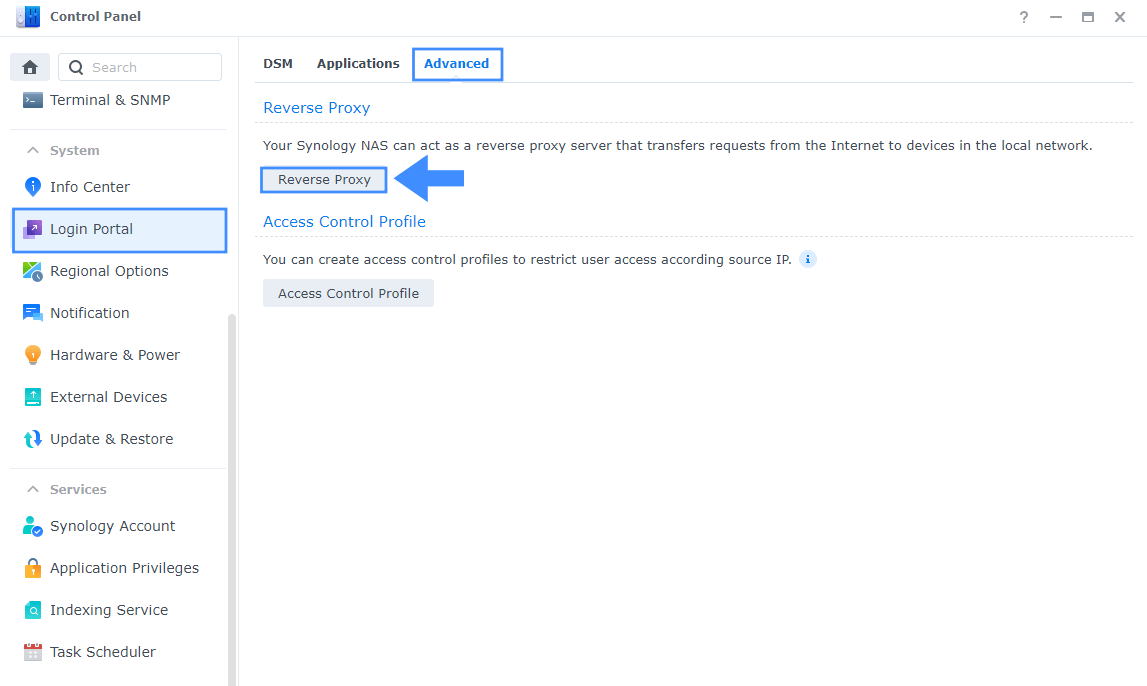
STEP 5
Now click the “Create” button. Follow the instructions in the image below.
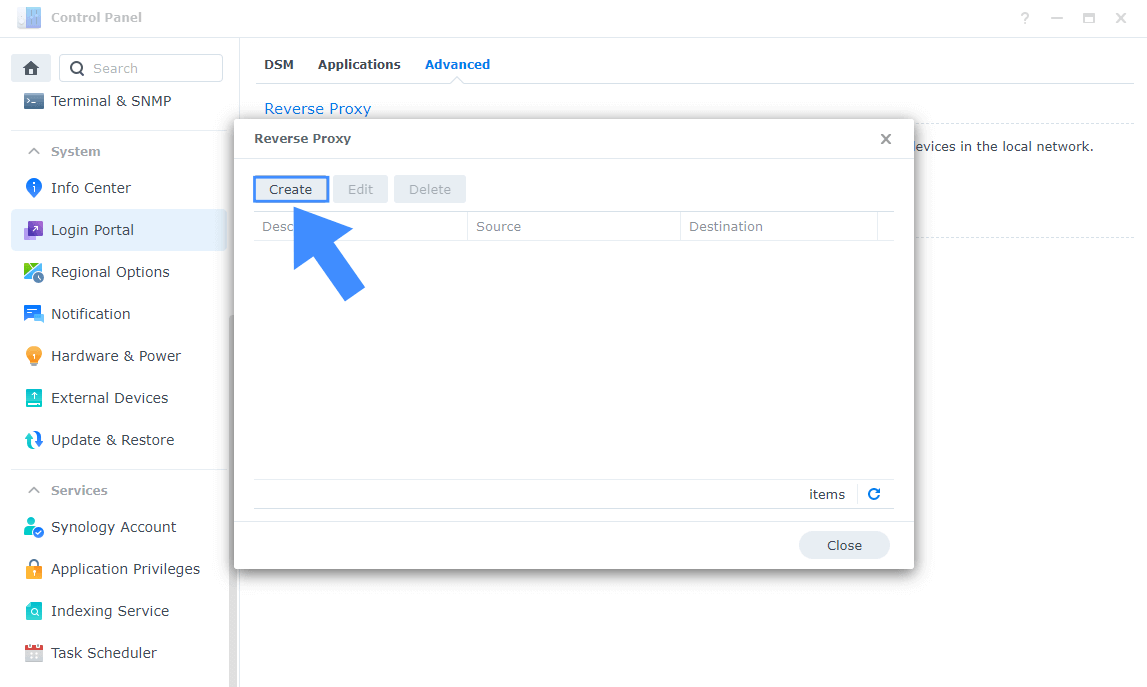
STEP 6
After you click the Create button, the window below will open. Follow the instructions in the image below.
On the General area, set the Reverse Proxy Name description: type in Picsur. After that, add the following instructions:
Source:
Protocol: HTTPS
Hostname: picsur.yourname.synology.me
Port: 443
Check Enable HSTS
Destination:
Protocol: HTTP
Hostname: localhost
Port: 8286
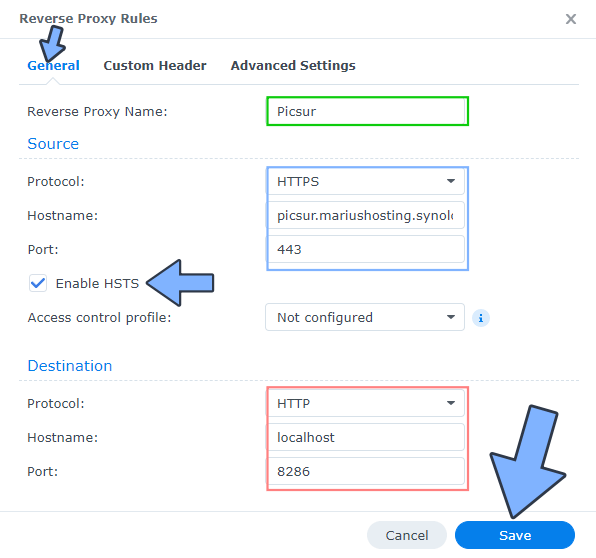
STEP 7
On the Reverse Proxy Rules, click the Custom Header tab. Click Create and then, from the drop-down menu, click WebSocket. After you click on WebSocket, two Header Names and two Values will be automatically added. Click Save. Follow the instructions in the image below.

STEP 8
Go to Control Panel / Network / Connectivity tab/ Check Enable HTTP/2 then click Apply. Follow the instructions in the image below.
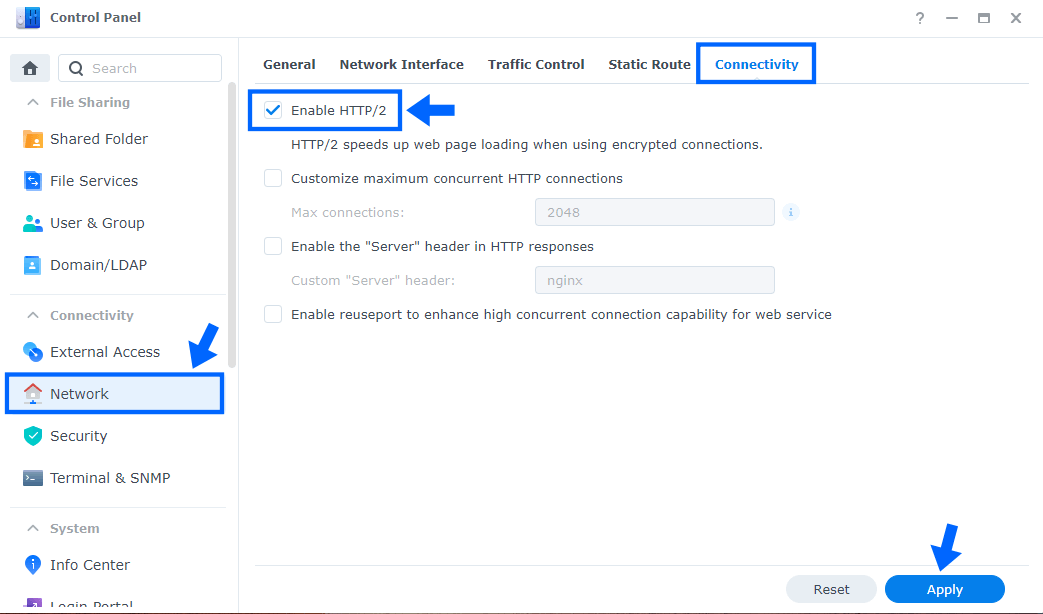
STEP 9
Go to Control Panel / Security / Advanced tab/ Check Enable HTTP Compression then click Apply. Follow the instructions in the image below.
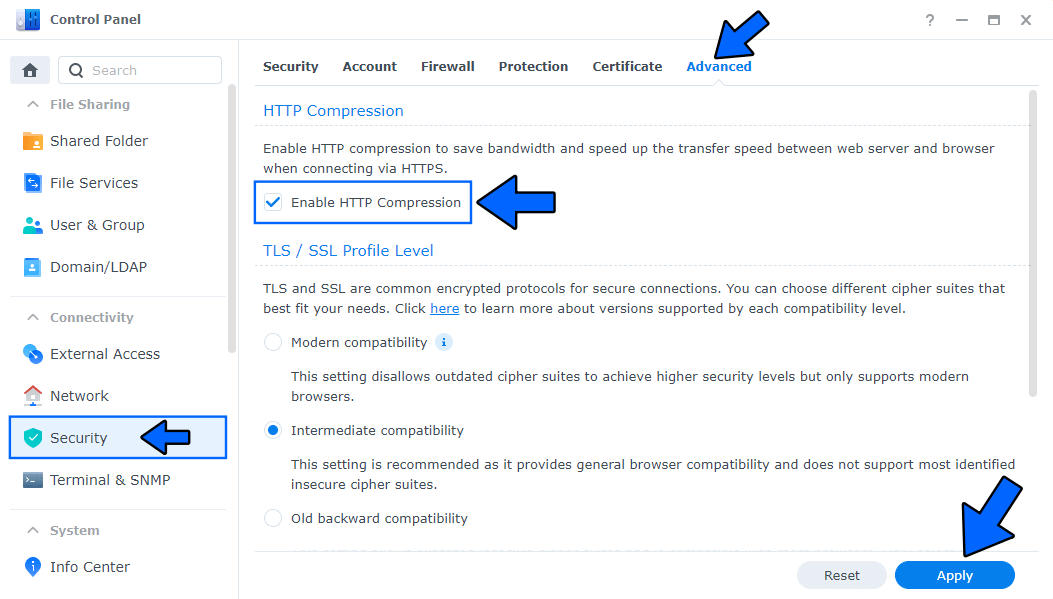
STEP 10
Go to File Station and open the docker folder. Inside the docker folder, create one new folder and name it picsurdb. Follow the instructions in the image below.
Note: Be careful to enter only lowercase, not uppercase letters.
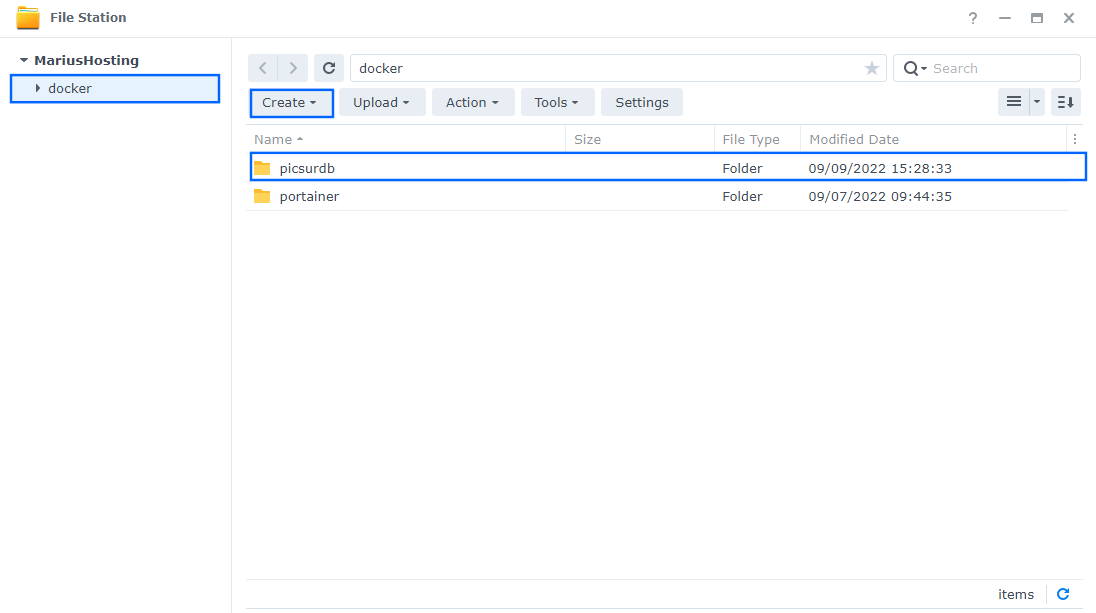
STEP 11
Log into Portainer using your username and password. On the left sidebar in Portainer, click on Home then Live connect. Follow the instructions in the image below.

On the left sidebar in Portainer, click on Stacks then + Add stack. Follow the instructions in the image below.

STEP 12
In the Name field type in picsur. Follow the instructions in the image below.
version: "3.9"
services:
db:
image: postgres:16
container_name: Picsur-DB
hostname: picsur-db
mem_limit: 1g
cpu_shares: 1024
security_opt:
- no-new-privileges:true
healthcheck:
test: ["CMD", "pg_isready", "-q", "-d", "picsur", "-U", "picsuruser"]
timeout: 45s
interval: 10s
retries: 10
volumes:
- /volume1/docker/picsurdb:/var/lib/postgresql/data:rw
environment:
POSTGRES_DB: picsur
POSTGRES_USER: picsuruser
POSTGRES_PASSWORD: picsurpass
restart: on-failure:5
picsur:
image: ghcr.io/caramelfur/picsur:latest
container_name: Picsur
ports:
- 8286:8286
environment:
PICSUR_PORT: 8286
PICSUR_DB_HOST: picsur-db
PICSUR_DB_PORT: 5432
PICSUR_DB_USERNAME: picsuruser
PICSUR_DB_PASSWORD: picsurpass
PICSUR_DB_DATABASE: picsur
PICSUR_ADMIN_PASSWORD: picsur
PICSUR_MAX_FILE_SIZE: 128000000000
depends_on:
db:
condition: service_healthy
restart: on-failure:5
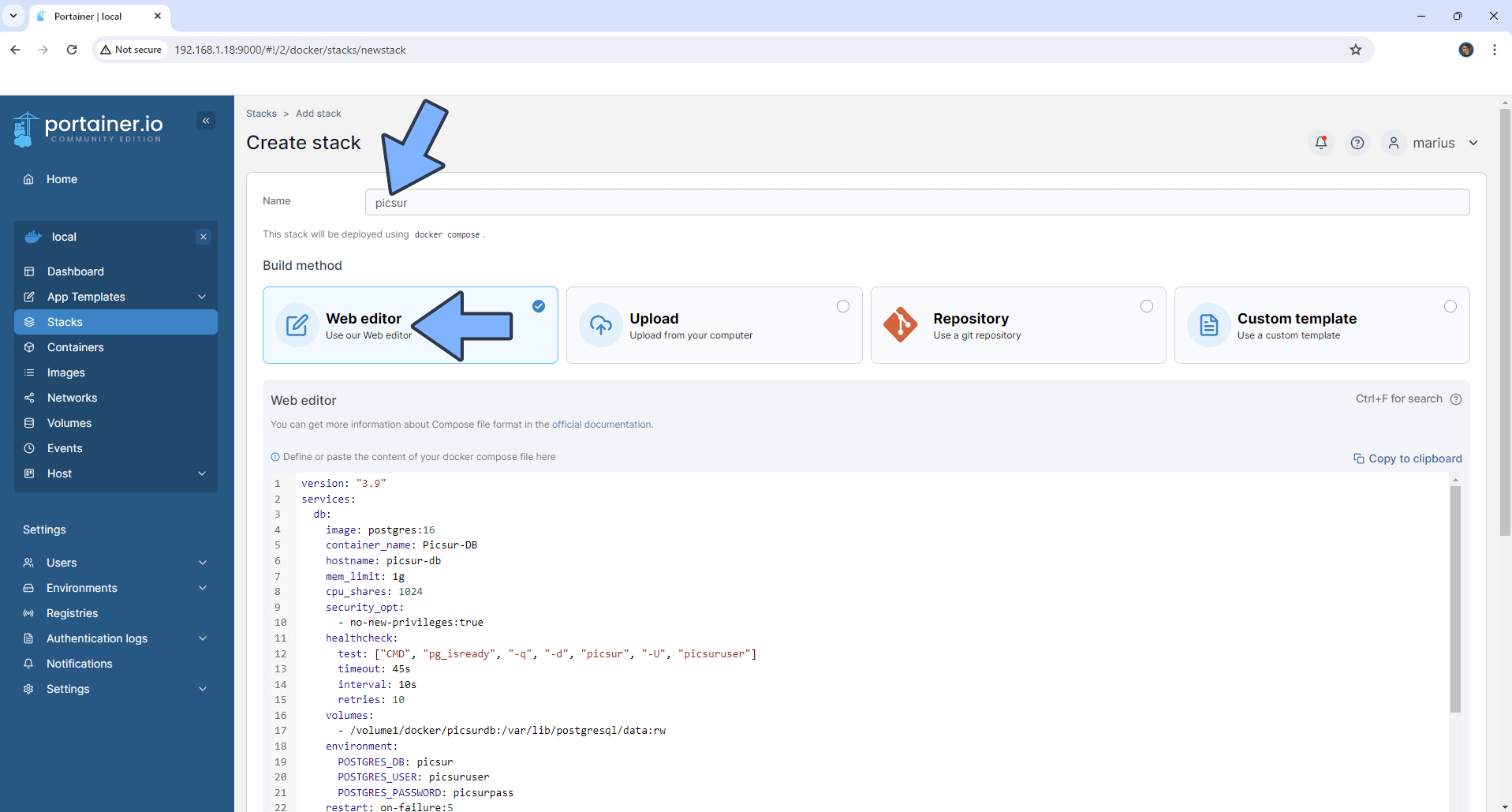
STEP 13
Scroll down on the page until you see a button named Deploy the stack. Click on it. Follow the instructions in the image below. The installation process can take up to a few minutes. It will depend on your Internet speed connection.
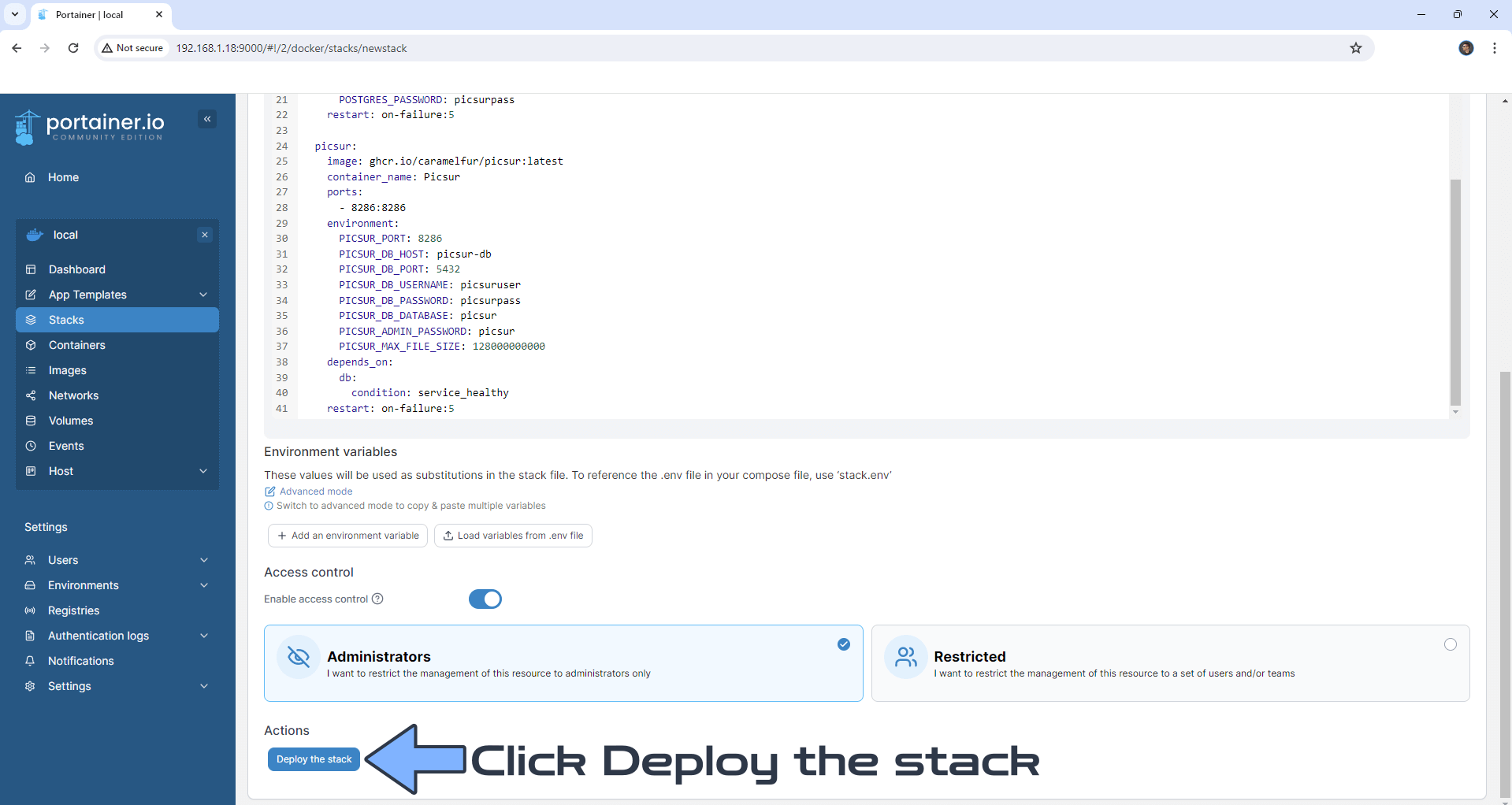
STEP 14
If everything goes right, you will see the following message at the top right of your screen: “Success Stack successfully deployed“.

STEP 15
🟢Please Support My work by Making a Donation. Almost 99,9% of the people that install something using my guides forget to support my work, or just ignore STEP 1. I’ve been very honest about this aspect of my work since the beginning: I don’t run any ADS, I don’t require subscriptions, paid or otherwise, I don’t collect IPs, emails, and I don’t have any referral links from Amazon or other merchants. I also don’t have any POP-UPs or COOKIES. I have repeatedly been told over the years how much I have contributed to the community. It’s something I love doing and have been honest about my passion since the beginning. But I also Need The Community to Support me Back to be able to continue doing this work.
STEP 16
Now open your browser and type in your HTTPS/SSL certificate like this https://picsur.yourname.synology.me In my case it’s https://picsur.mariushosting.synology.me click Log in. Follow the instructions in the image below.
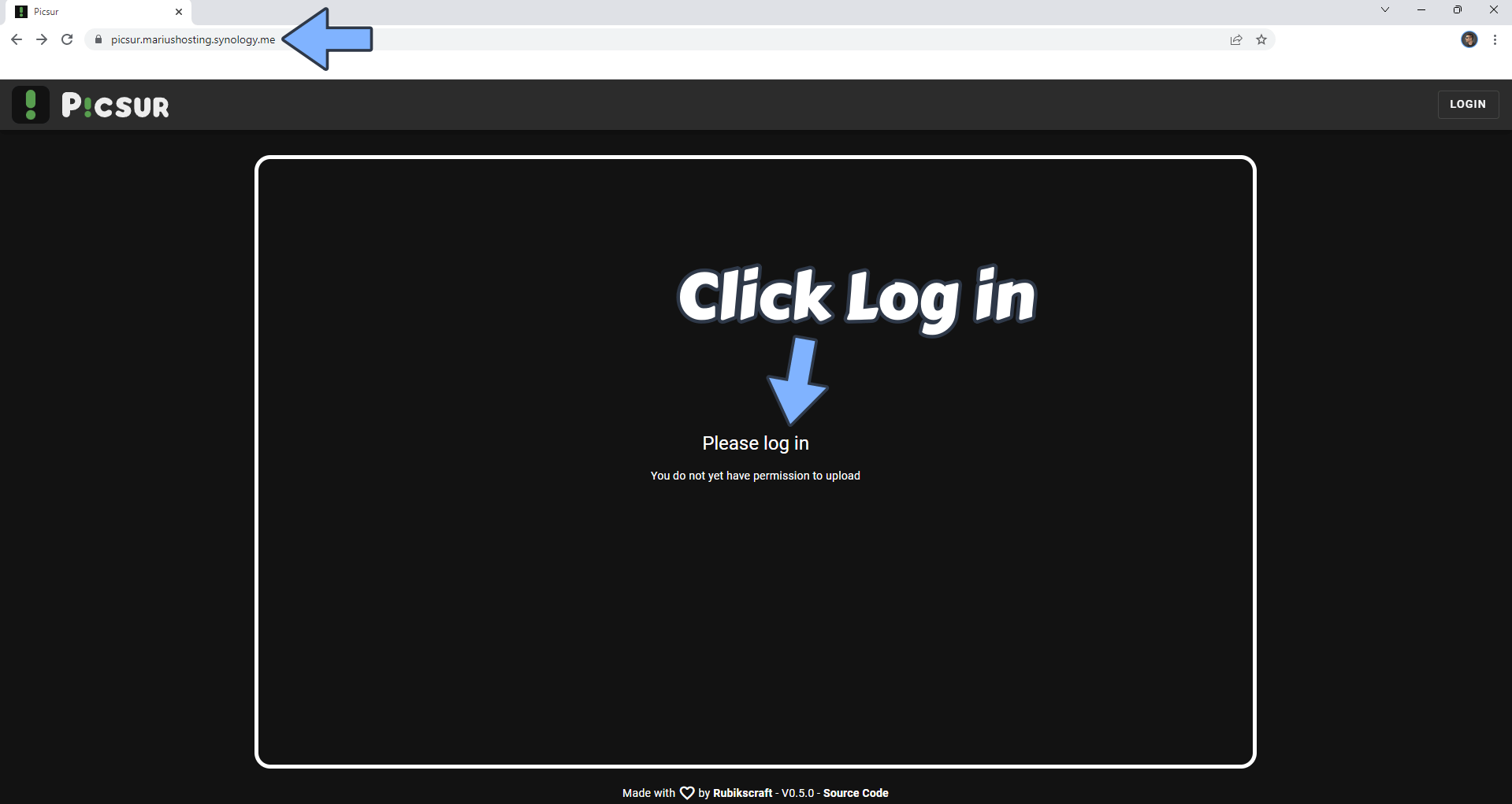
STEP 17
Type in the default username and password, then click LOGIN.
Note: You can change your credentials once you log in.
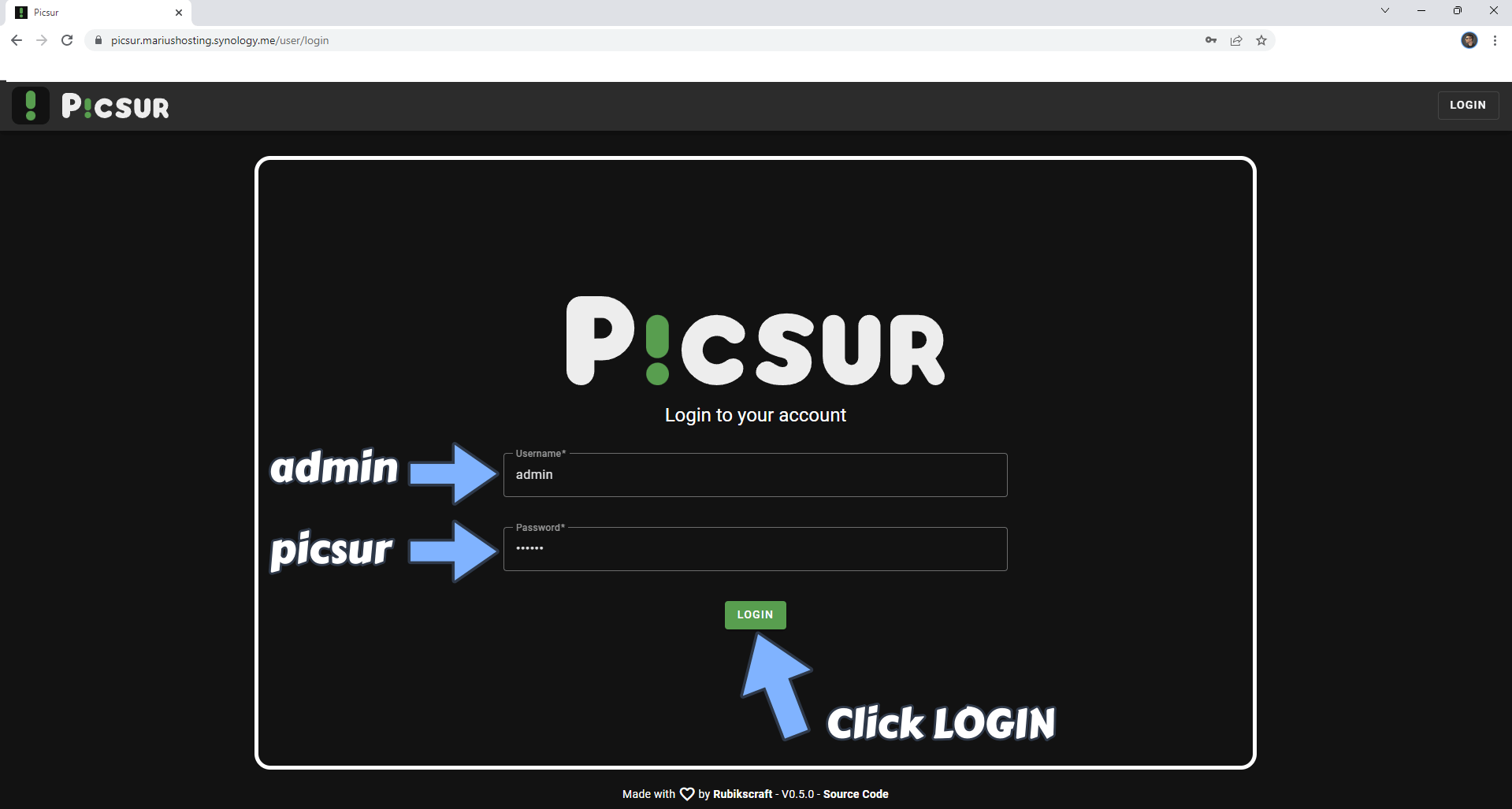
STEP 18
Drag and Drop your files from your NAS or PC inside Picsur. Follow the instructions in the image below.
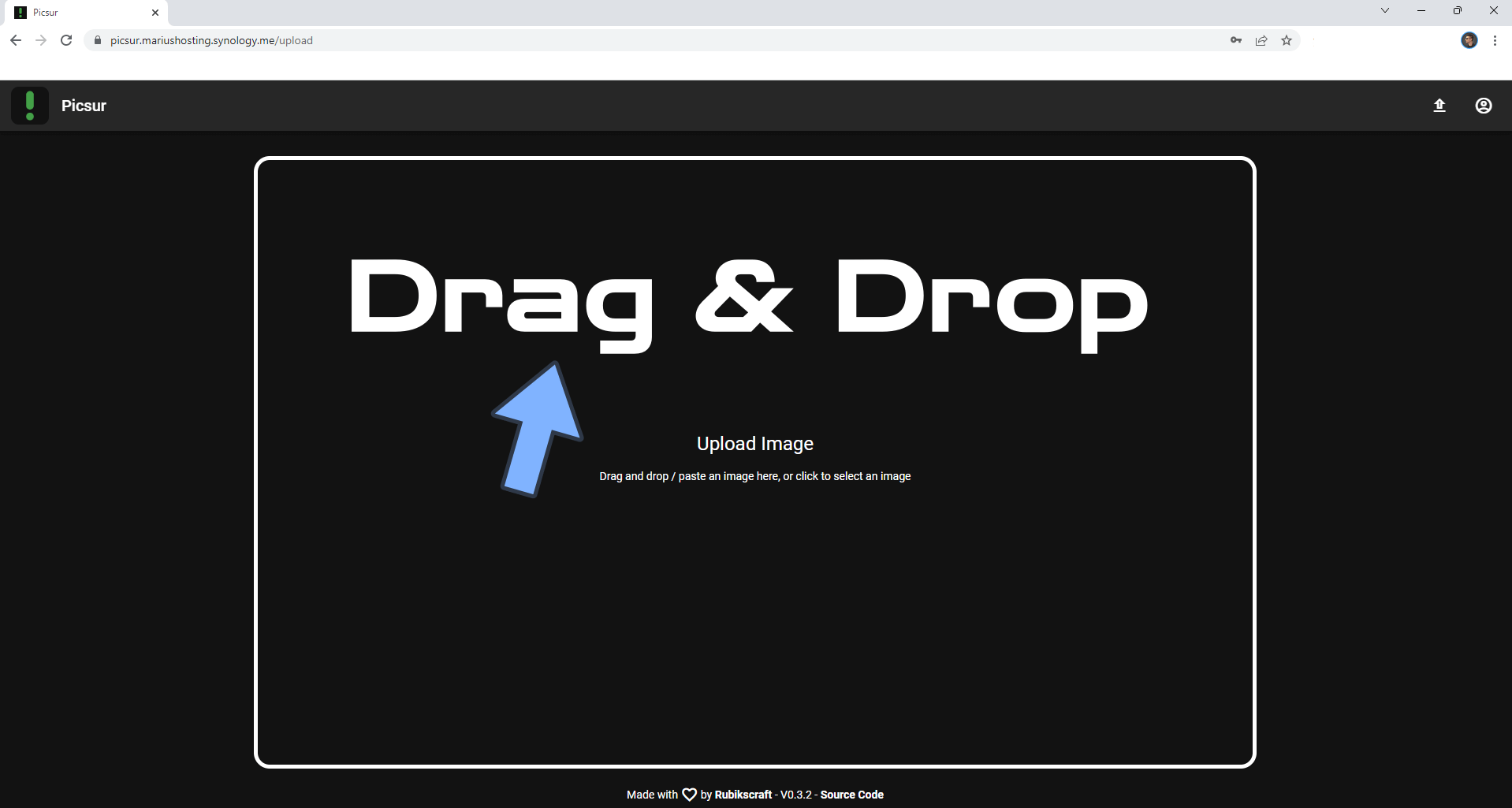
STEP 19
After you upload your favorite images one by one, go to admin at the top right of the page, then click My Images to see all of them. Click VIEW on an image to access more options. Follow the instructions in the image below.
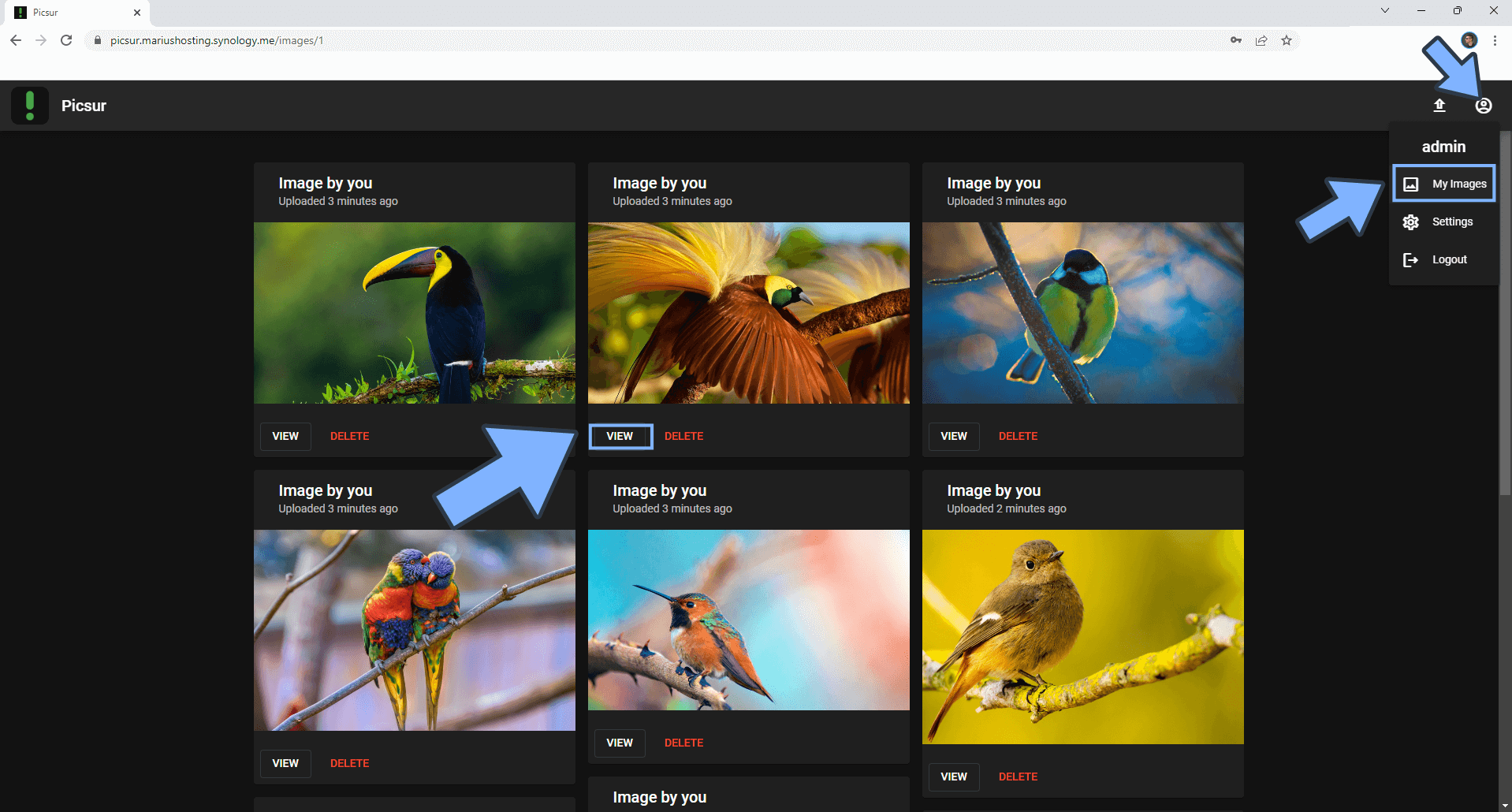
STEP 20
Copy Image URL to share with your friends. Follow the instructions in the image below.
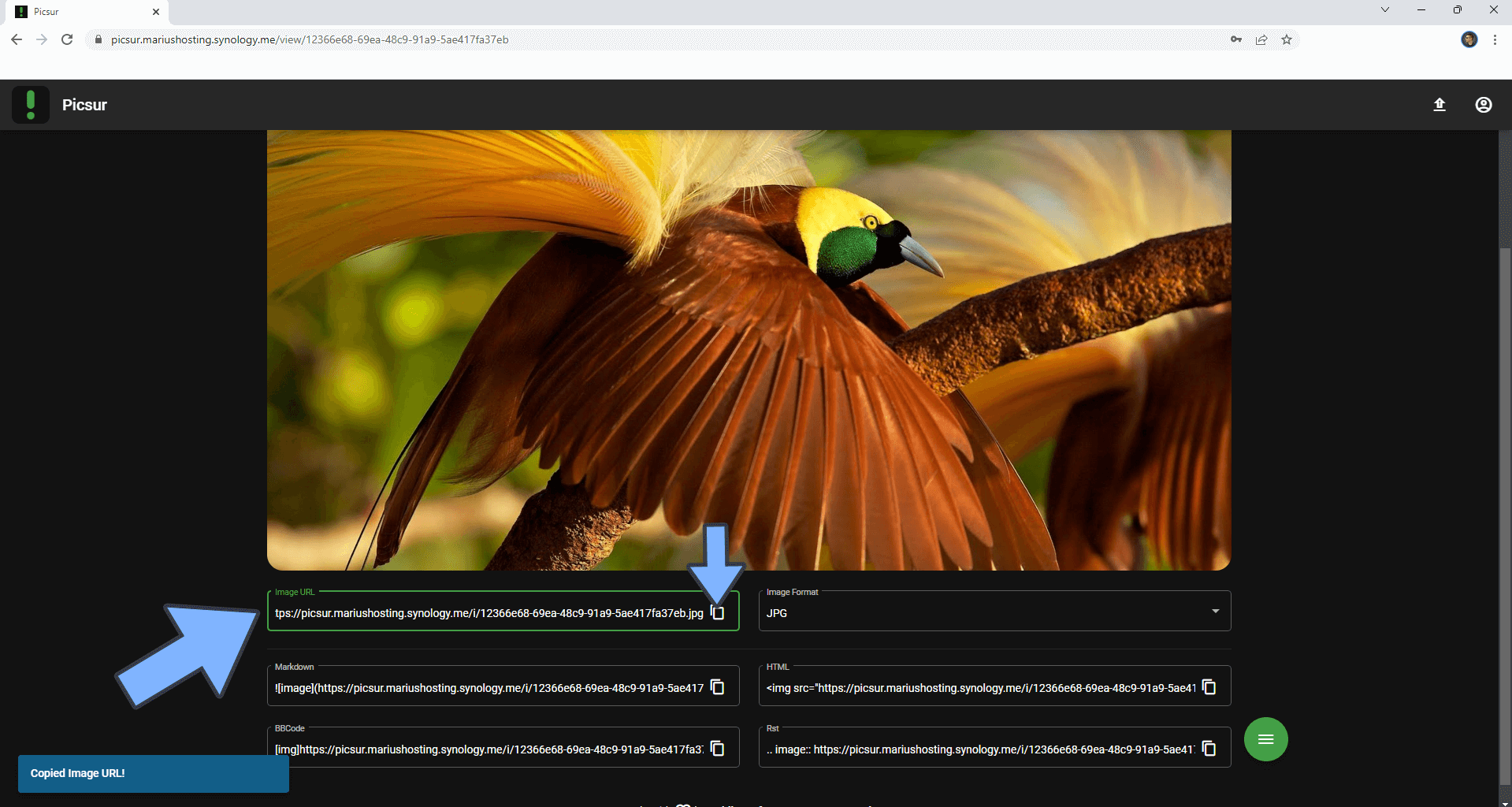
STEP 21
Done, your image is visible to your friends.
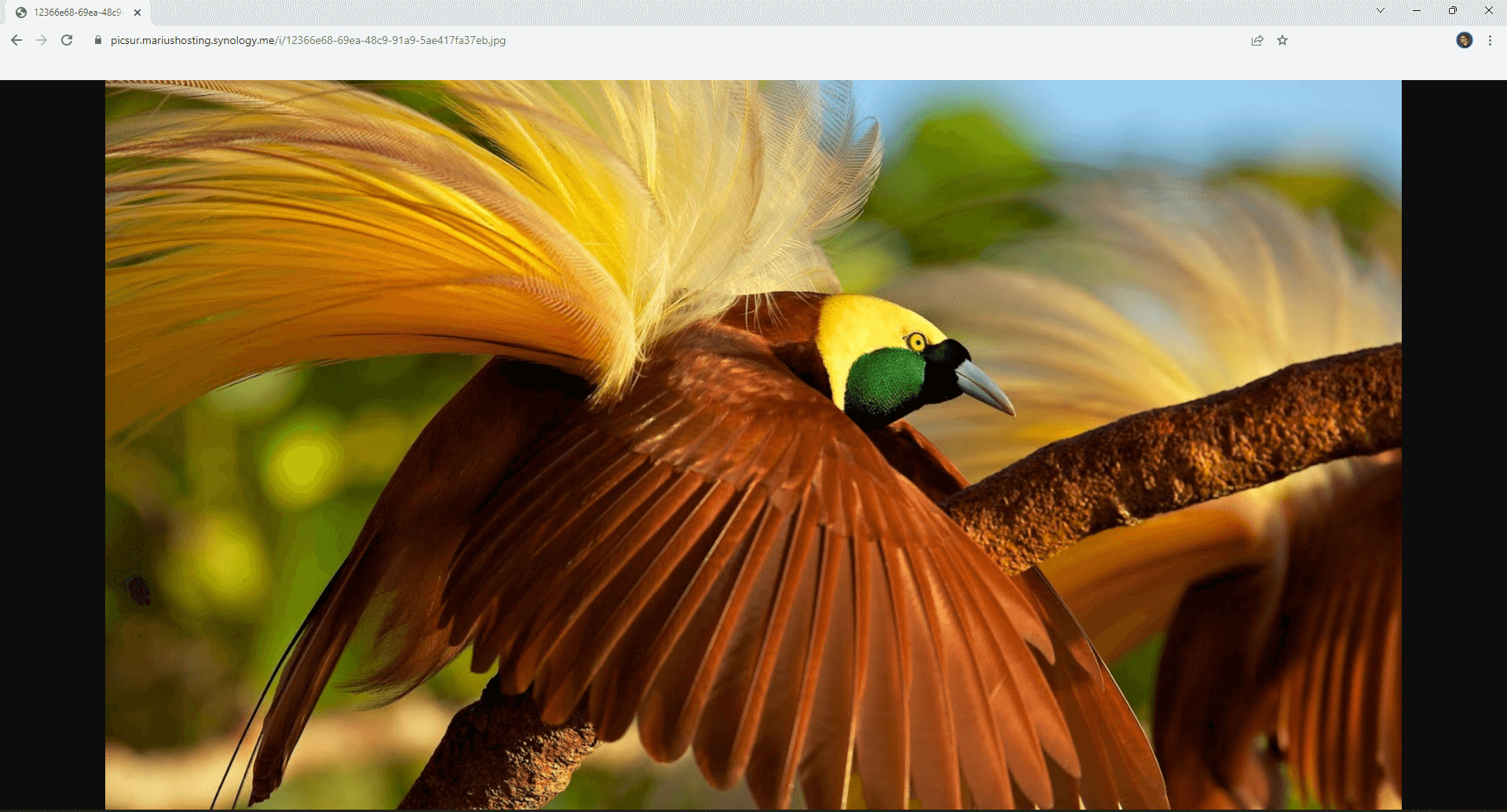
STEP 22
Click on the Green button to download the image. You can also share files and access more options. Follow the instructions in the image below.
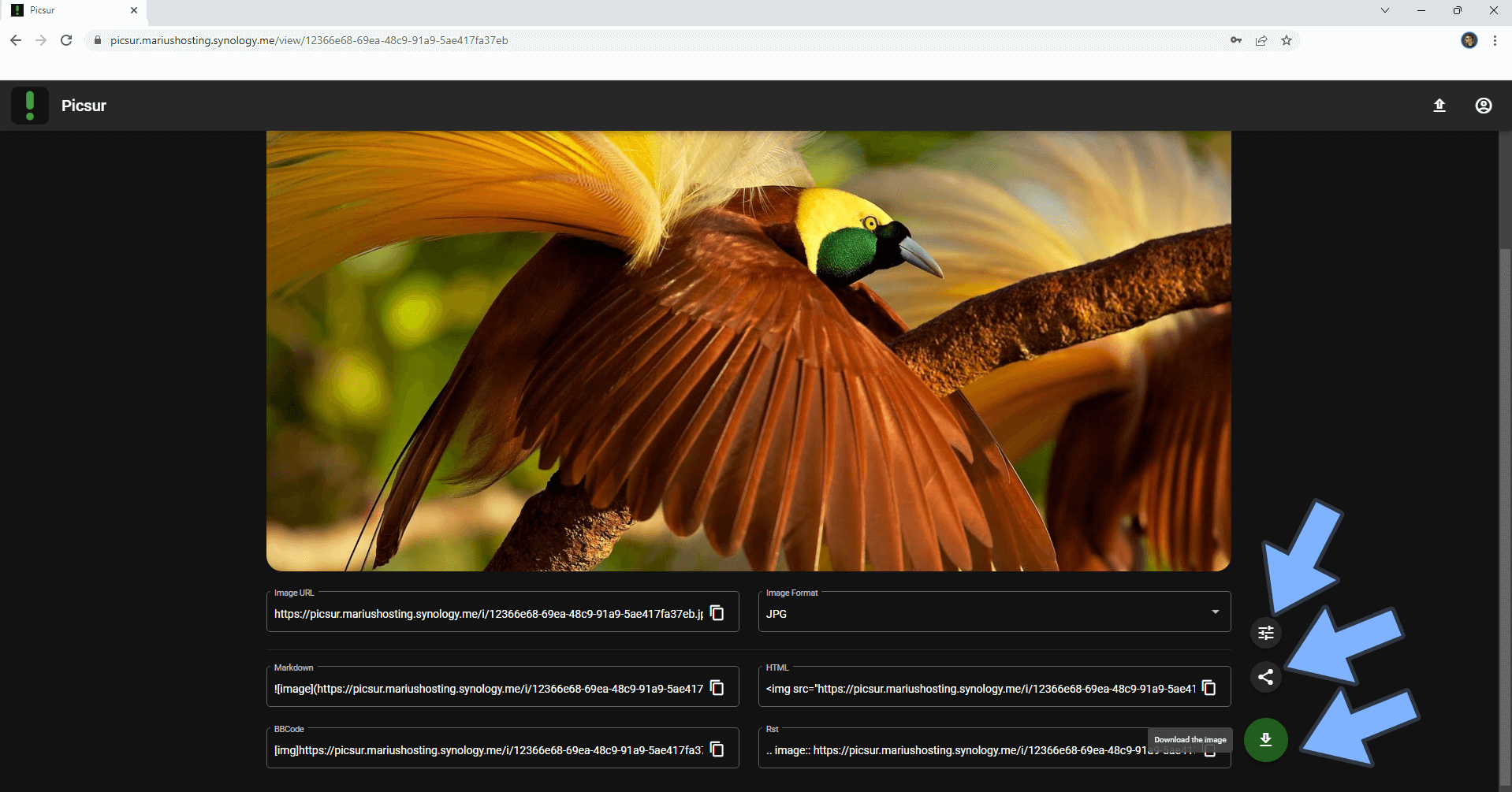
STEP 23
You can also Resize, Rotate, Flip, Strip transparency, Negative and Greyscale every image you have uploaded.
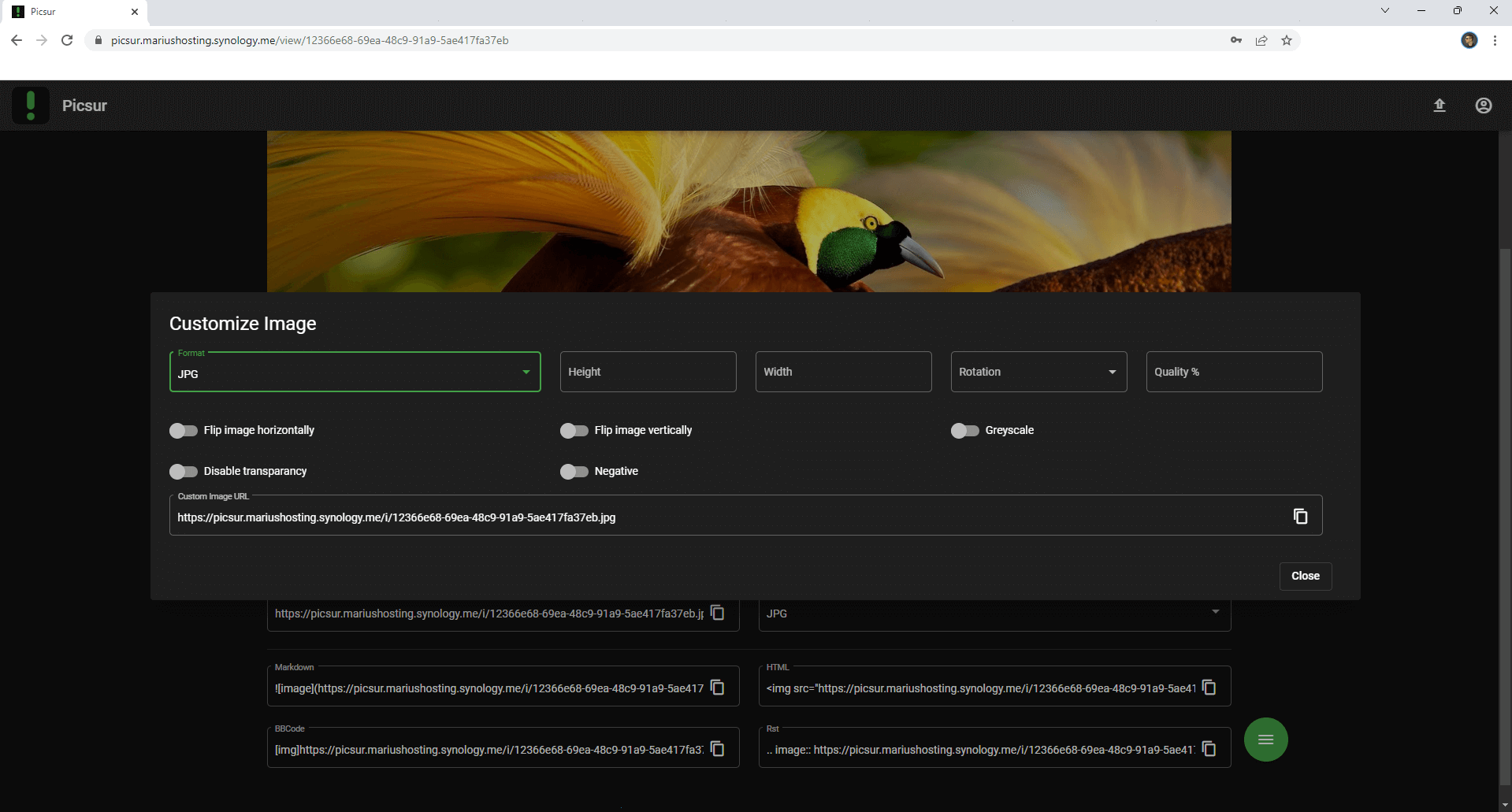
Enjoy Picsur!
If you encounter issues by using this container, make sure to check out the Common Docker issues article.
Note: Find out how to update the Picsur container with the latest image.
Note: Can I run Docker on my Synology NAS? See the supported models.
Note: How to Back Up Docker Containers on your Synology NAS.
Note: How to Free Disk Space on Your NAS if You Run Docker.
Note: How to Schedule Start & Stop For Docker Containers.
Note: How to Activate Email Notifications.
Note: How to Add Access Control Profile on Your NAS.
Note: How to Change Docker Containers Restart Policy.
Note: How to Use Docker Containers With VPN.
Note: Convert Docker Run Into Docker Compose.
Note: How to Clean Docker.
Note: How to Clean Docker Automatically.
Note: Best Practices When Using Docker and DDNS.
Note: Some Docker Containers Need WebSocket.
Note: Find out the Best NAS Models For Docker.
Note: Activate Gmail SMTP For Docker Containers.
This post was updated on Friday / August 29th, 2025 at 12:58 AM
